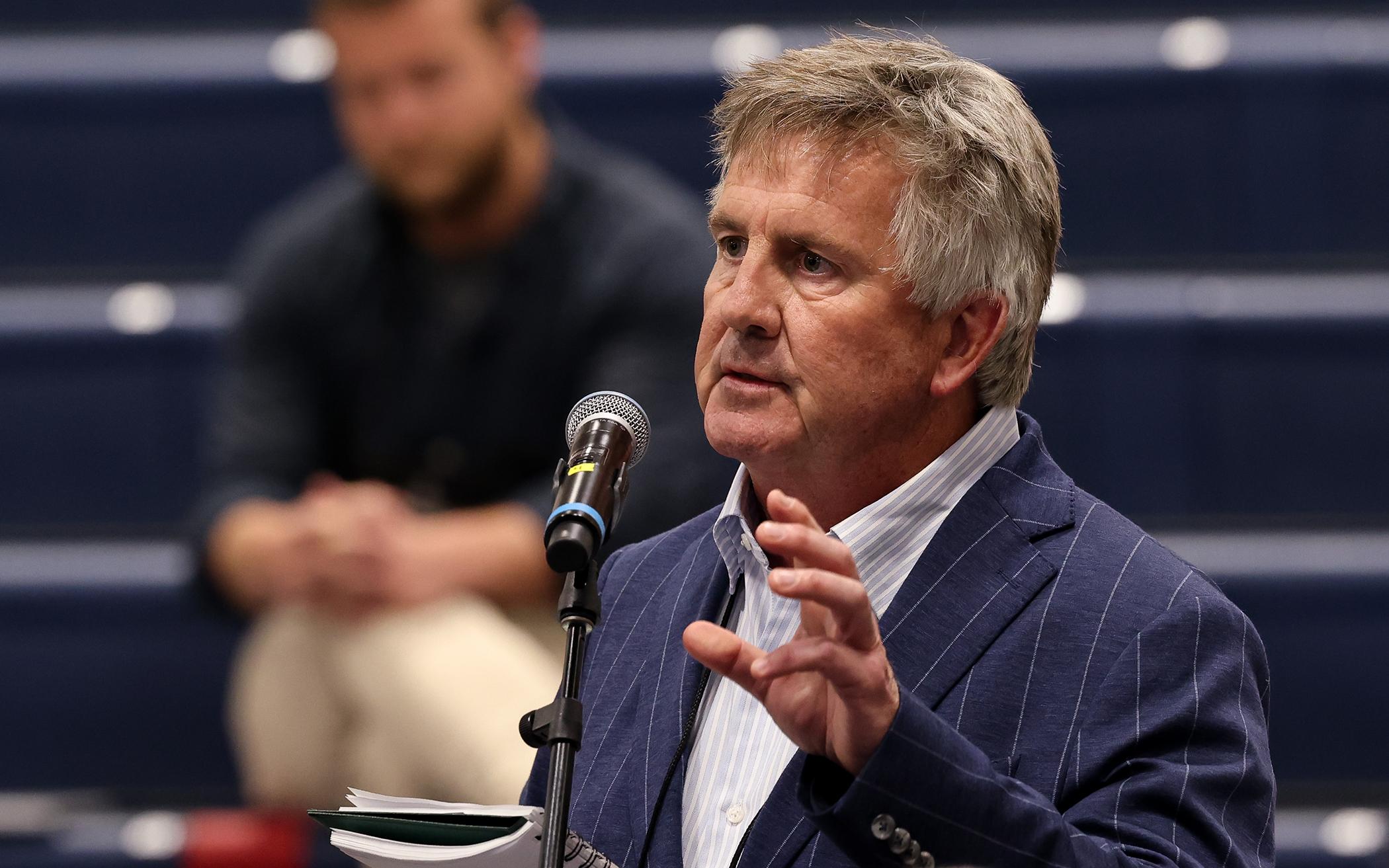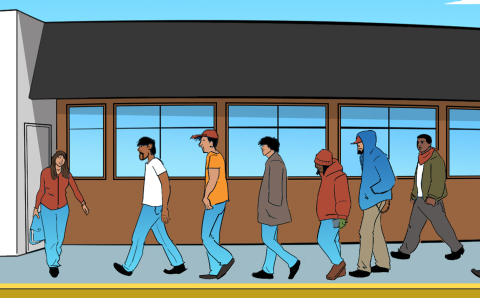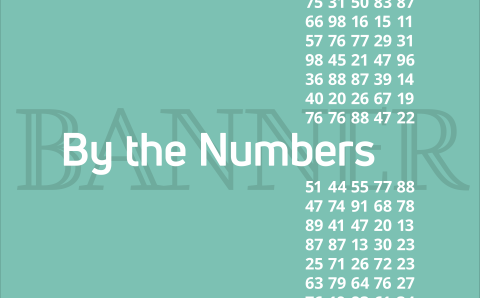Synod 2025 instructed the Calvin University Board of Trustees to further define “indefinite exceptions to confessional subscription,” and the reasons they may be granted and report back to Synod 2026.
Synod is the annual general assembly of the Christian Reformed Church in North America. It is meeting June 13-19 in Ancaster, Ont.
Before delegates of Synod 2025 discussed it, Perrin Rynders, who will be the board chair of Calvin University in October, and Noah Toly, provost at Calvin University, shared a few comments on the board’s process for arriving at the proposal it presented.
Rynders outlined four main themes: covenantal relationship, confessional commitment, confessional alignment for trustees, and confessional alignment for faculty. He emphasized that Calvin University is rooted in the covenant of the Christian Reformed Church in North America and the board of trustees unanimously affirms the CRCNA’s confessional interpretations, saying that’s not a new stance, but one that should be emphasized.
Rynders also noted Calvin’s trustees are no longer allowed to submit a gravamen—a formal expression of a difficulty with a confessional doctrine—and must be confessionally aligned. He said, “When we work at recruiting, identifying those who are willing to serve the mission of the university, we’re very clear on what we expect.” He said, “Our job (at Calvin University) is to teach fully in accord with the teachings synod tells us about.”
Toly addressed how the university works with faculty, especially as it relates to changes in confessional subscriptions and difficulties. He said, “The church’s position has always been in our positions, and we’re finding ways to make that more explicit.” He shared about a three-year onboarding developmental approach for new faculty who might be unfamiliar with the Reformed tradition. At the end of the three years, Toly said, “We expect those faculty members to sign the covenant for faculty members or leave our employment if they can’t.” There’s a focus on discernment and mentoring for those with confessional difficulties and “permission of some indefinite exceptions only after at least six years of service”—the part of the report that synod wants clarification on for next year’s synod.
During discussion, some delegates raised concerns about how confessional subscription might affect academic freedom. John Tamming, Classis Huron, felt “the river of intellectual ideas that flows through our denomination from these people and these institutions has been dammed.” He added, “I don’t see a defense of academic freedom, and that disappoints me.”
Isadore Labrosse, Classis Greater Los Angeles, countered: “They’re not free to teach unbiblical documents.” Sky Pike, Classis Muskegon, said “I appreciate that academic freedom needs to be in the bounds of the Word of God, the confessions, and the creeds.”
Synod 2025 also celebrated the Calvin Prison Initiative and noted the upcoming 150th anniversary of Calvin University. It gave praise for President Greg Elzinga’s leadership and among other highlights noted the school recently was awarded three Goldwater awards and was named the No. 1 teaching university in the Midwest.
Synod 2025, the annual general assembly of the Christian Reformed Church in North America, is meeting June 13-19 on the campus of Redeemer University in Ancaster, Ont. Find daily coverage from The Banner at TheBanner.org/synod. Visit crcna.org/synod for the agenda, advisory reports, recordings of plenary sessions, and to subscribe to the daily Synod News email.
About the Author
With a passion for words and creativity, Kristen Parker has been a freelance news correspondent for The Banner since 2019. She became the communications coordinator for Canada with Christian Reformed Church Communications in 2025. Kristen and her husband Chris, enjoy running and thrift shopping. They attend Stratford CRC in Stratford, Ont.









